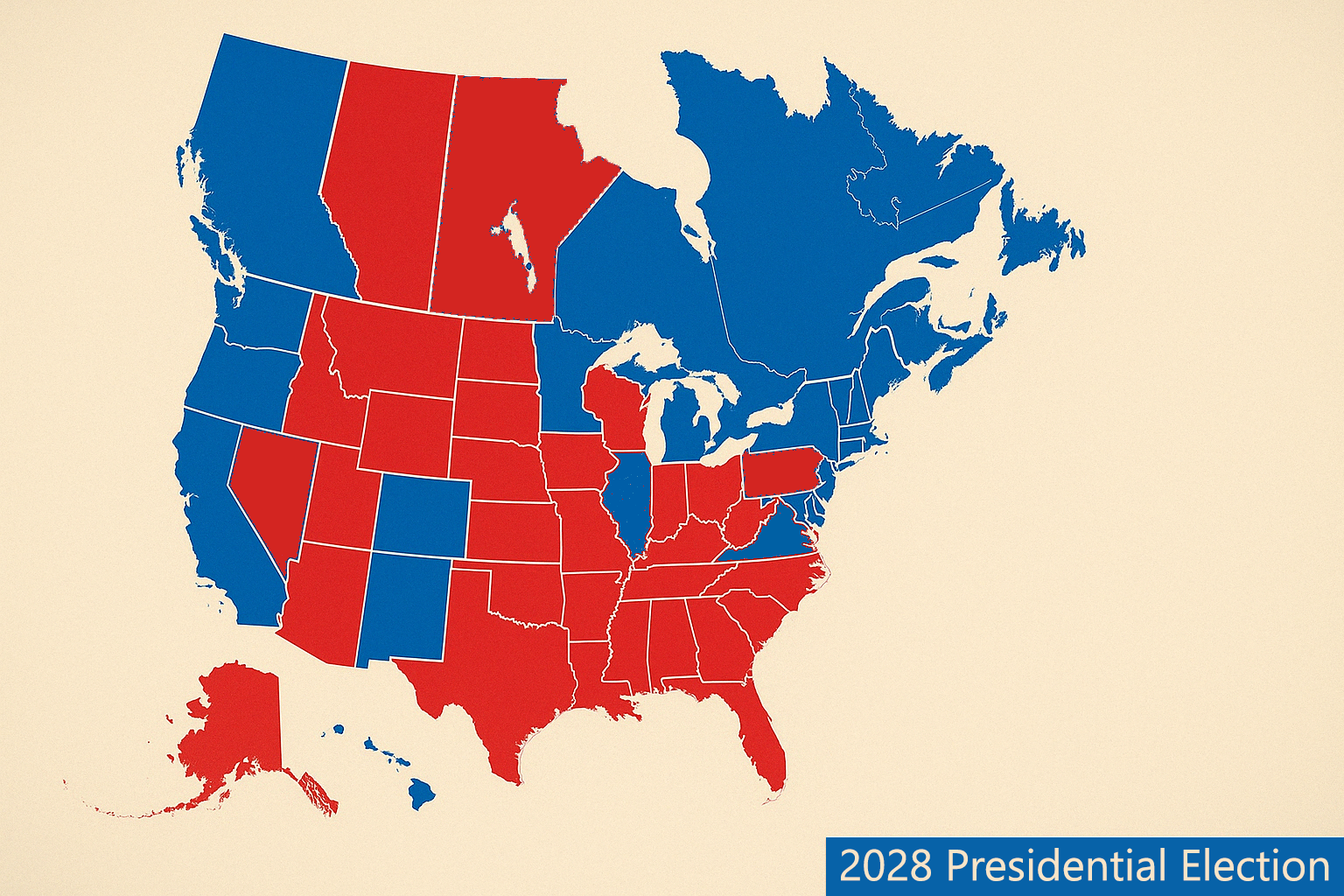Trump's suggestion that Canada become the 51st state is, in practice, a political stunt with no realistic path forward. While the notion of merging two of the world's most closely intertwined democracies may spark curiosity or even amusement, a closer examination reveals that the idea is not only unworkable but also deeply unpopular and fraught with political, legal, and cultural obstacles.
The legal mechanisms required for such a transformation are politically insurmountable. The U.S. Constitution allows for the admission of new states, but the process demands majority approval in both chambers of Congress and the President's signature. Historically, new states have emerged from U.S. territories (hey Puerto Rico, how's that going?) or, in rare cases, from independent republics like Texas, but always with the clear consent of the population involved and the existing federal structure7. For Canada, the path is even more complex. Under Section 41 of the Canadian Constitution Act of 1982, any move to dissolve the federation or transfer sovereignty would require unanimous consent from the federal Parliament and all ten provincial legislatures—a political feat that borders on the impossible36.
Canadian public sentiment is overwhelmingly against the idea. Recent polls show that about 80% of Canadians reject the notion of joining the United States, citing concerns over sovereignty, healthcare, gun laws, and political culture56. Canadian leaders across the political spectrum have condemned Trump's rhetoric, with Prime Minister Trudeau and opposition figures alike labeling the proposal as either a joke or an affront to Canadian sovereignty24. Even as Trump's comments have shifted from jest to apparent policy, the Canadian response has only grown more unified in opposition.
From an American perspective, there is no serious legislative movement to admit Canada as a state. The U.S. Congress has not entertained such a proposal, and the political will is entirely absent. The practical consequences would be staggering: Canada's population (over 41 million) would make it the largest state, surpassing California by more than 10 million residents. This would grant Canada approximately 55 House seats and two U.S. Senators, dramatically altering Congressional representation and the Electoral College balance. In essence, admitting Canada as a single state would be equivalent to adding another California to the Union – but one with even more progressive voters.
If Canada's provinces were admitted as separate states instead, the political landscape would transform even more dramatically. Ontario (15 million residents; 22 electoral votes) would be comparable to Illinois in both population and progressive urban-centered politics89. Quebec (8.8 million; 14 electoral votes) would parallel New Jersey's population but with stronger social democratic leanings81315. British Columbia (5.3 million; 10 electoral votes) would mirror Colorado in size but resemble Washington state's progressive environmental politics81011. Alberta (4.6 million; 8 electoral votes) – Canada's most conservative province – would be similar to Kentucky in population but closer to Utah in voting patterns8121315. Together, these new "states" would add up to 26 new Senators, with potentially 20 or more reliably voting with Democrats131415. Ironically, this proposal would be deeply counterproductive to Republican political interests for generations to come. Canadian voters overwhelmingly favor progressive policies on healthcare, climate change, gun control, and social issues—precisely the positions that Republicans have opposed131415. The addition of millions of left-leaning voters would likely cement Democratic majorities in both houses of Congress for decades131415. Beyond politics, the integration of two vastly different legal, healthcare, and social systems would create chaos rather than cohesion14.
That's 272 electoral votes for the Democrat candidate, and 320 electoral votes for the Republican candidate based on the 2024 election, which was a "landslide" for Trump.
... on second thought, maybe this is something to consider.
Trump's strategy appears to be less about genuine policy and more about political theater. His comments have coincided with aggressive tariff threats and economic pressure, which have already triggered significant backlash and retaliatory measures from Canada4. Canadian officials and commentators have described Trump's tactics as "insulting," "deeply flawed," and even "an act of war" in the rhetorical sense46. Rather than advancing any realistic agenda, Trump's remarks serve to inflame nationalist sentiment on both sides of the border and distract from substantive policy debates.
If Canada were to refuse (and all evidence suggests it would) the matter would end there. There is no legal or moral mechanism for the United States to annex a sovereign, democratic neighbor against its will. Any attempt to do so would be a violation of international law and would irreparably damage one of the world's most important bilateral relationships13.
Additional Reading:
- Canadians are taking Trump's annexation talk very seriously
- Trump's remarks on Canada becoming the 51st state raise a lot of questions
- How Trump's '51st State' Canada Talk Came to Be Seen as Deadly Serious
- U.S.-Canada Ties May Face Even Bigger Trouble
- 'Closest target': Why is Donald Trump so focused on Canada?
Citations:
-
Trump’s 51st State Proposal: A Political Stunt or Feasible Reality? ↩
-
Movements for the annexation of Canada to the United States ↩
-
Could Canada really become the 51st U.S. state? How Trump's joke could become reality ↩↩
-
Canada fires back at Trump’s ‘51st State’ remark; Is President Trump’s rhetoric and tariff strategy an act of war, or just political posturing? ↩↩↩
-
What do Canadians think about their country becoming the 51st U.S. state and their prime minister serving as governor? ↩
-
UBC experts on Trump’s aim to make Canada the 51st state ↩↩↩
-
Trump’s remarks on Canada becoming the 51st state raise a lot of questions ↩
-
Changing population is changing the political landscape in Illinois ↩
-
How Trump's push for Canadian statehood would hurt the GOP ↩↩↩↩↩
-
Canada's universal health-care system: achieving its potential ↩↩↩↩
-
Canada's universal health-care system: achieving its potential ↩↩↩↩↩
